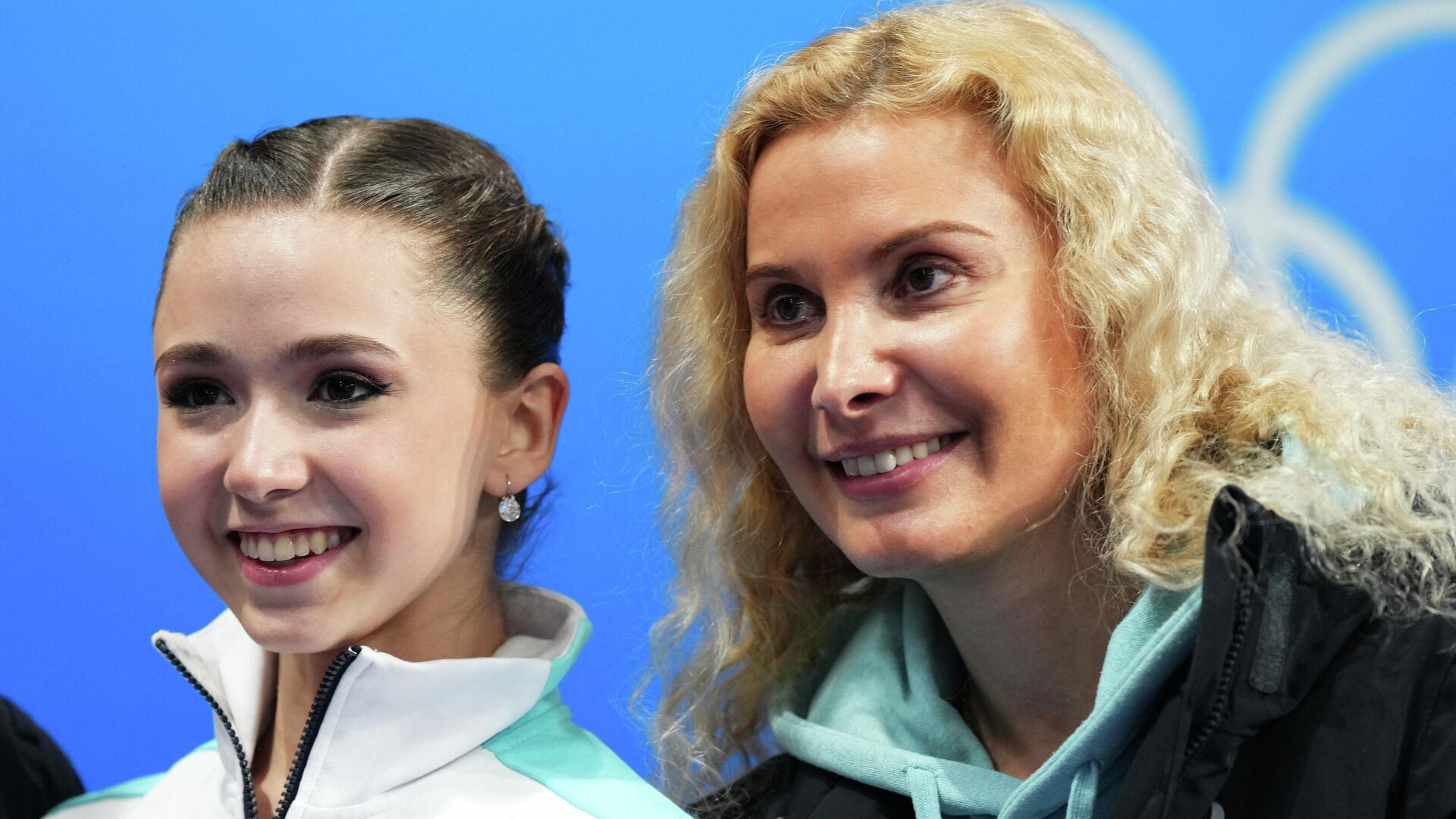What is the Rodchenkov Act the US is Threatening to Sue Russian Olympic Skating Coaches Under?
Subscribe
After the Russian Olympic skating team took the Gold following Kamila Valieva’s first-ever quadruple jump by a woman, it soon emerged that she had failed a drug test taken in December. Now, the US is threatening to prosecute her coaches under a highly questionable US law.
Travis Tygart, head of the US Anti-Doping Agency (USADA), told Reuters on Friday that US prosecutors could soon bring charges against Valieva’s coaches under the Rodchenkov Anti-Doping Act (RADA), which then-US President Donald Trump signed into law in 2020.
The vaguely-worded law seeks to “impose criminal sanctions on certain persons involved in international doping fraud conspiracies” if they affect the result of US athletes at the event, and to “provide restitution for victims of such conspiracies.”
It was named after Russian whistleblower Grigory Rodchenkov, a former director of the Russian Anti-Doping Center laboratory.
“It shall be unlawful for any person, other than an athlete, to knowingly carry into effect, attempt to carry into effect, or conspire with any other person to carry into effect a scheme in commerce to influence by use of a prohibited substance or prohibited method any major international sports competition,” the law states.
In defining these terms, it defers to the UNESCO International Convention against Doping in Sport, which defines an “anti-doping rule violation” as “the presence of a prohibited substance or its metabolites or markers in an athlete’s bodily specimen,” as well as various efforts to traffic in such substances, manipulate test results, or refuse to take a test.
The law cannot be brought against minors. However, it claims to have “extraterritorial jurisdiction,” meaning it can be used against people who are not US citizens and in connection to violations that affect US athletes in “major international sport competitions.”
As punishment, the law carries a maximum sentence of 10 years in a US prison and/or $250,000 in fines if just one person is prosecuted, or $1 million if more than one is prosecuted. It also allows the US to seize any property used or intended to be used to violate RADA.
When the RADA bill was first introduced in March 2020, the World Anti-Doping Agency (WADA), a foundation created at the initiative of the International Olympic Committee (IOC), had serious qualms about the bill’s effects, especially its extraterritorial nature.
WADA President Witold Bańka said in a statement that the bill could create overlapping laws that stand in the way of harmonization of anti-doping rules; that it would discourse rather than encourage whistleblowers to come forward; and spark other extraterritorial laws that would be used for discriminatory purposes against athletes, such as targeting athletes of specific nationalities, which would “set off a chain reaction” hurting all athletes.
Could the US Use RADA Against Valieva’s Coaches?
Because the Olympic skater is just 15 years old, the Rodchenkov Act cannot be used to target her, but the US may try to use it against her coaches, Daniil Gleikhengauz, Eteri Tutberidze and Sergei Dudakov. The extraterritoriality of the law means that Tutberidze could potentially be arrested and extradited to the United States if she visits a country that has an extradition treaty with Washington.
However, several key facts about Valieva’s case mean RADA is totally inapplicable and the threats are nothing more than a storm in a teacup.
According to the International Testing Agency (ITA), the leading anti-doping agency for the Beijing Winter Olympics, Valieva failed a December 25, 2021, drug test at the 2022 Russian Figure Skating Championships in Saint Petersburg, Russia, which returned a result showing the banned heart medication trimetazidine. The results of the test were obtained by the Russian Anti-Doping Agency (RUSADA) on February 7, 2022, the day of Valieva’s gold medal performance, due to a severe backup at the Stockholm, Sweden, laboratory created by COVID-19 tests.
When RUSADA received the test result, Valieva’s participation in the Olympics was immediately suspended. The following day, she appealed the agency’s decision and the day after that, her suspension was rescinded and she was once again free to compete.
According to the Russian Olympic Committee, Valieva has passed several drug tests since the December 25 test, including those in Beijing necessary to compete in the games.
In other words, her competition at the Olympics was legal and she did not have any banned substances in her system unfairly aiding her performance. Her team legitimately beat all her competitors, including the American team that took Silver and would stand to benefit from an invalidation of Valieva’s performance.

